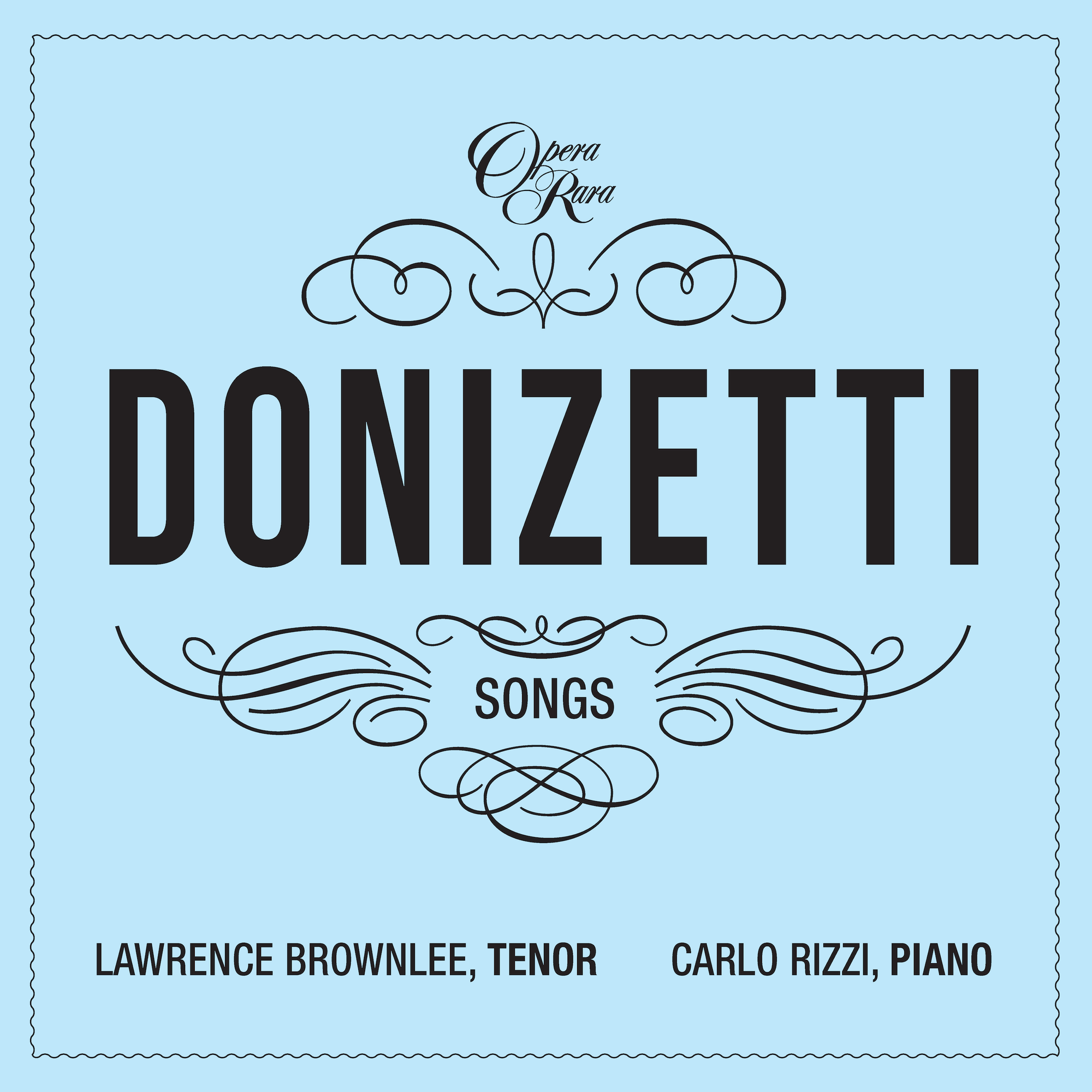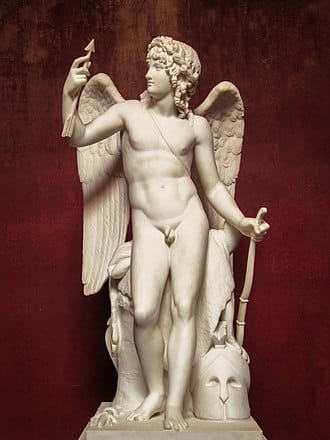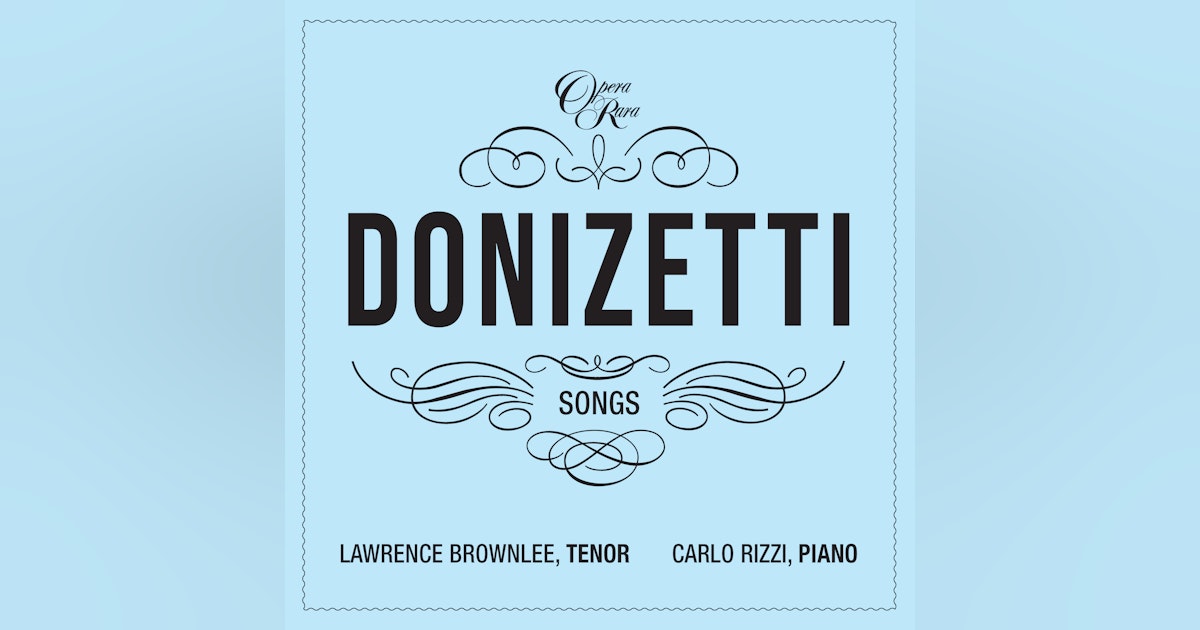Donizetti Songs, #1: Lawrence Brownlee & Carlo Rizzi

We began our coverage of Opera Rara's Donizetti Songs #4 because of the inclusion of a setting of some of the libretto for La Straniera, and we covered Bellini's opera of that name recently. now back to the beginning - Genesis, as it were - with Volume 1. Incidentally, I reviewed Lawrence Brownlee and Carlo Rizzi's Wigmore recital launching this project in September 2023 (review).
So why not say with a star name as vocalist. Lawrence Brownlee impressed via his Don amid Cenerentola at he Met alongside Elīna Garanča (see my review of the Barbican simulcast back in 2009). And what a way to begin!: a rousingly forward momentum is set up in the piano fo L'amante spagnuolo (“Corri destrier, deh celere”). The text (Leopoldo Tarantini) concerns a love hurtling towards his beloved on a steed; the poem concentrates mainly on the horse, bizarrely, and the lady's reaction to said animal:
Brownlee's voice is brilliantly free and easy, and heroic; Rizzi provides perfectly crisp hymns, and Donizetti's harmonic excursions make their point well.
The second song, Con le graze, con le muse (With the Graces, with the Muses) is fascinating as it is an offering to the Danish sculptor Bertel Thorvaldsen (1770-1844), who for a late part of his career was based in Italy; the song was performed on the 29th (!) anniversary of the sculptor's arrival in Rome. The text, by Scipione Barbieri, refers directly to “Il Promo danese” (the Danish Prometheus), set to one of the song's characteristic leaps, performed with such abandon by Brownlee.

The following song is Il donativo, “Tu porgesi a me l'anello”; short and sweet with just the odd decoration of the vocal line.
Although a song, the text ion the next song is from an opera libretto (reflected in the emotions held within), Non v'è più barbaro (There is none more cruel) it hails from the second act of Demetrio (text Metastasio). It is sung by “Alceste” (who is actually Demetrio) and appears here as a canzonetta. This is an early song (pre-1830). The piano part does sound a bit like an orchestral reduction, interestingly. The song itself is quixotic in its changes, and Brownlee and Rizzi react instantly to each:
It is in the decorations that the delights of the early song, ”Perché mai Nigella amata” lie; another early song, the canzonetta “Rendini il core, O barbara” (Give me back my hear, O cruel one) offers a coda that bings in whole new ideas as he protagonist says; “My faithful soul, rest in peace” (Anima mia fedele / Rimani in pace):
A quotation from Lucia act III (Edgardo's “Tu che a Die spiegasti l'lai”) turns up in Il sogno, "Nostre misere menti”. A beautiful song of loss, and of a vision of the passed loved in the sunset, The end does seem strangely sudden, though:
... and here's the Lucia aria, Baniamno Gigli in December 1927 on a Victor recording (details on the label photo that kicks off the video component of this YouTube):
Something more upbeat is called for after that - doing from the 1830's, one of Donizetti's best-known and best-loved songs, Me voglio fa' na casa (I want to make a house [in the middle of the sea]).
There is a ton of competition for this - Pavarotti. Bartoli, Renato Bruson, you name it - but also Brownlee himself!. He recorded it for EMI with Martin Katz on the piano, The recording now sits with Warner. Katz does not have Rizzi's sensitivity, and although both honour the shift to the minor works well, and indeed there is no doubting the freshness of Brownlee's voice in the early recording, the.most recently take is more convincing. Here's the earlier one:
Notable for it's “duet” between voice and piano treble (right-had) in its final moments, the (probably) late song Malvina la Bella sull' arpa:
Ths is a beautiful song, and competition here comes from Opera Rara itself: Ildebando d'Arcangelo - so a shift down in voice range - with David Harper on piano from the series Il Salotto (Volum 4, Il Sibillo, The Whisperer):
In keeping with voice range, d'Arcangelo is darker, Brownlee more open. I do prefer Brownlee and Rizzi's little duet at the end, though.
The Lamento di Cecco da Valungo is new to the modern era. The text is by Francesco Baldovini, a song of rejection n love characerised by its melodic development. Brownlee is remarkable convincing here:
I like the commentary on the new song, Trova un sol, Mia belli Clori (Find a single person, O lovely Clori), which considers the Arcadian aspect (text Metastasio, from his Cantate) and how that is refaced in the slightly backward-looking setting of the first stanza only for the new century's vernacular (when the protagonist protests that among many sinners, why is it he the is single out?). It is followed by an earlier setting of basically the same text; the second second is set vey differently, quicker:
The next song is surely the most impressive on the disc, an operatic scena - Rizzi is superb in his scene seting and it is easy to har tripping woodwinds in some of the right-hand descents. The text is by Romani (from the libretto to Il romito di Provenza). The cabaletta is simply beautiful as the protagonist realises the only hope of happiness is in Heaven:
All seems in order with the barcarolle which follows, the archetypal oarsman lamenting in an equally archetypal 6/8. Until, that is, he remembers that on another tract of (stormier) water, his beloved fell into the sea, at which point Donizetti seems to revel in descending scales in the piano representing that sinking into the depths!:
There is an instrumental obbligato the joins as a 'second voice' in the next song, a clarinet, played here by Jernej Albrecht. An archetypal song of idealisation of the lady coupled with an invitation to an affair, Or che la notte invita (Now that the night prompts [terror even from the shadows]), this is an utter delight, the obbligato part so skilfully written. A second voice yes, but also idiomatically written for the clarinet. A nice voice and clarinet dialogue, too on the word 'Vieni' (Come):
Even in the simplest of songs, Donizetti's fingerprint is there (the ensuing, Se lontan, ben mir, to sei; If, my beloved, you are far from me) . It contrasts with the seriousness of a Dante setting (from La divina commedia, “Inferno”) that is, unfortunately, unfinished. Brownlee does give this his all, beyond doubt:
Two settings of the same text, Quando verrà sul colle (When on the hill there arrives / [the sweet new spring])) reveal Donizetti's diversity, the first blessed by a beautiful, simple melody; the second more interior, more softly lyrical. A fascinating example of what the one composer can do with the same words; Rizzi's contributions to the second are charming. The first is a canzonetta, the second a romanza:
One of the more famous Donizetti songs next, in which Elisa is late for a lover's meet: L'ora del ritrovo (Odi, Elisa, questa è l'ora), and we hear the man's impatience. Brownlee and Rizzi paint the song's emotions superbly, with.delicious lightness at times from both:
.. and just for fun here's a complementary reading by Javier Camerena and Ángel Rodríguez, very much live and involved, at the Palacio de Bellas Artes in 2011:
One of the more famous songs is Donna infelice, stance amore; and one of the more famous recordings is Joan Sutherland and Richard Bonynge (iDagio link). For all of Dame Joan's excellence, it is the piano that clinches it: Rizzi is significantly more imaginative than Bonynge, and in tandem with Brownlee, the song's shape is significantly more impactful:
Even if the authenticity of Il ritorno del trovtore nel Gerusalmme is deputed, it is a lovely narration song; also in some doubt is Lunge ne vai da Italia (You go far away from Italy), aching yet harmonically (somewhat) adventurous song.
Lovely to have a “canzonetta siciliana,” though, sung in Sicilian dialect and with the most delicious countermelodies on piano, delivered with he lightest of touches by Rizzi:
Brownlee and Rizzi bring out the simplicity of ht song, minor-mode disturbances themselves only minor. In contrast, each stanza of the next song, “Voi vorreste il nome amato” (You want to know again / [The beloved name of my idol]) is like an aria in miniature, and as the notes point out; they are right, too, that upwardly-rising interval is positively aspirational here:
A pity I can't find a recording of Mercadante's setting of the next text (it appears in the libretto by Romani for Francesca Donato), V'era un dì che il cor beato. A song that consides how the protagonist's focus has moved for anticipating a bright future to living in the past, Donizetti's setting includes some fascinating harmonic shifts:
Il sorriso è il primo vezzo (The smile is the first sign) is interesting in its exravagance of vocal embellishment; but it is Non giova il sospirar (Sighing is useless) the, as the 28th song on the disc, that closes the recital. It ends with a decidedly light touch. This is to a text by Metastasio, associated with an early period perhaps, but perfect here:
A stunning stroll though Donizetian byways, for sure. But also .. one hears he operas differently in tehlight of his. Hearing the songs reminds us of the intimate side of Donizetti, and when we hear the same melodic/harmonic tropes in the operas, the emotions seem deeper. And while the vocal range and extravagance might be more in opera, the songs are no less special.
This disc is available at Amazon here.


